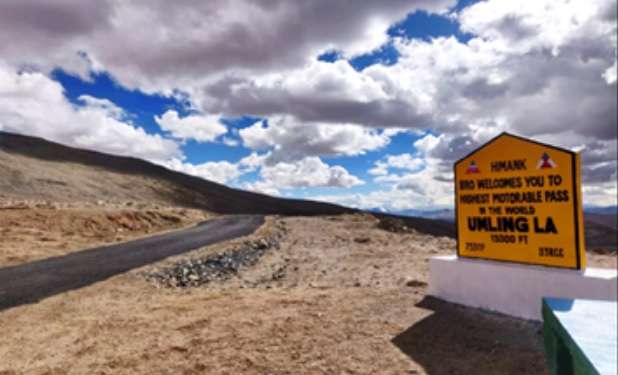The breathtaking beauty of Ladakh covered with snow-capped Mountains, glorious land of Ladakh and serene lakes is almost magical. Most of the economy of Ladakh is dependent on tourism. But last two years have given a major jolt to the tourism sector of the region because of abrogation of article 370, then tensions on the border with China, and Covid-19 pandemic.
Though, since past few months situation is changing due to tourist footfall. But the type of tourism has changed a bit in the region since past few years. The modernity and change in tourists have made a great impact on the region. The wastage of natural resources, water, deforestation and clearing of lands for the construction of hotels and huge amount of garbage has drained the natural beauty and environment of the region.
UT administration of Ladakh issued a notification earlier this month allowing Indian nationals to visit notified protected areas, which include Nubra Valley, Pangong Lake and Tsomoriri Lake, among others, without the need for an inner line permit (ILP). This step has been taken to encourage more domestic tourists.
There are certain things that a tourist could follow while travelling to places in Ladakh, while being sensitive about the fragility of the environment.
Tourists often consume lot of packed food and bottled water which are thrown away by many tourists. Ladakh waste management infrastructures are not sized to handle the tons of garbage generated during the tourist season and there is no facility for recycling. Instead of using of bottled water, one can get their own steel bottle which can be refilled.
Being a responsible tourist, one should not intervene with the nature of the region. The flora and fauna of the region must be protected. One should always maintain a sufficient distance from wildlife while one takes in the spectacular sights on offer. Also, Ladakh is home to many ancient monasteries and other heritage sites. Tourists must honour these historical sites, and the cultural symbols and monuments associated with them.
Keeping in mind the environmental and sustainability needs of the region, Ladakh is designed not only eco-friendly but also uses a very less water and also produces organic manure for the fields. Conventional flush toilets use disproportionate amounts of water but traditional dry toilets needs little to no water at all. Moreover, dried human excreta are used as organic manure as well. It is utmost important for saving water in a region as considered to be a cold desert.
There are many home stays or guest houses offered by the locals for the travelers. It is beneficial for the villagers and locals economically and gives a great opportunity to the travelers to experience something different.
Being global warming a major concern for environment, one must use shared transport and vehicles in the region.
Ladakh has been surrounded by towering mountain ranges and serene lakes; it offers a very different tourism experience to visitors. Being a responsible tourist one must follow these few basic tips which can help in protecting the beauty of Ladakh.
